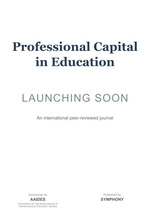From independence to interdependence: Rethinking educational research
DOI:
https://doi.org/10.70116/29802741103Abstract
Educational research stands at a critical juncture. As we advance deeper into the 21st century, traditional research paradigms that have long guided our understanding of educational phenomena are being challenged by new theoretical perspectives and methodological innovations. The question before us is not merely about adopting new techniques, but about fundamentally reconsidering how we conceptualize the very nature of learning, teaching, and educational effectiveness.
For decades, educational research has been dominated by individualistic approaches that seek to isolate variables and attribute outcomes to the independent actions of students, teachers, or administrators. While this reductionist perspective has yielded valuable insights, it may be limiting our ability to understand the complex, interconnected dynamics that truly drive educational success. We increasingly recognize that educational environments are not collections of isolated actors but dynamic social systems where relationships, interactions, and collective processes play crucial roles.
Recent advances in complexity science, network analysis, and machine learning offer unprecedented opportunities to examine these interconnected dynamics. These methodological innovations allow us to move beyond traditional cause-and-effect models toward more sophisticated understandings of how educational outcomes emerge from the intricate web of relationships within school communities.
Downloads
Downloads
Published
How to Cite
Issue
Section
License
Copyright (c) 2025 Symphony

This work is licensed under a Creative Commons Attribution 4.0 International License.














